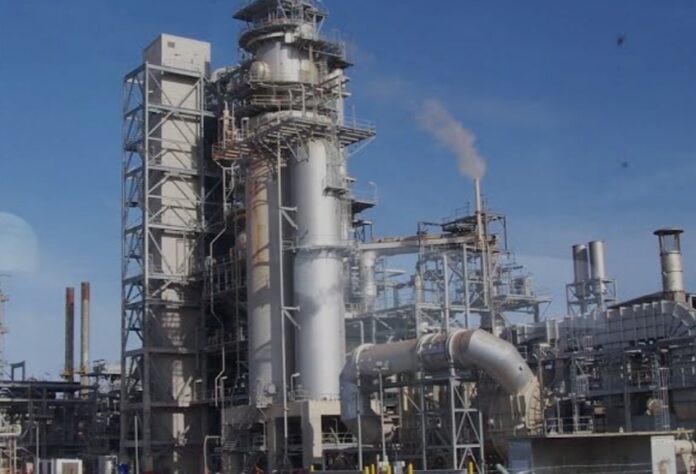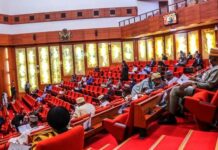Dangote Refinery Launch: Nigeria’s path to energy independence, economic growth
Stakeholders in the oil and gas industry are anticipating a significant turnaround in Nigeria’s refining sector as the long-awaited Dangote refinery is set to be commissioned later this month.
President Muhammadu Buhari is expected to inaugurate the oil refinery, marking the commencement of production since its construction began in 2016.
The federal government has confirmed the planned inauguration of the 650,000-barrels-per-day refinery.
Currently, the company is adding finishing touches for the inauguration, with operations expected to be gradually scaled up.
Stakeholders, interviewed by reporters, see the refinery as a solution to ending the country’s dependence on imports for almost all of its refined petroleum products.
The multi-billion-dollar Oil Refinery and Petrochemical Company is expected to address Nigeria’s perennial refining problems.
This approach could assist the federal government in its efforts to achieve self-sufficiency in refining crude oil locally, thus saving precious foreign exchange spent on petroleum imports.
The Dangote Refinery, the world’s largest single-train refinery, will produce up to 650,000 barrels per day, translating to a total of 103,341,742 liters of refined petroleum products.
The cost of the Dangote refinery has increased to $19 billion from the initial estimates of between $12 billion and $14 billion due to years of delays.
The Dangote Refinery complex, located in the Lekki Free Zone area of Lagos State, covers a land area of approximately 2,635 hectares, which is larger than the size of Victoria Island in Lagos.
Its pipeline infrastructure is the largest anywhere in the world, with 1,100 kilometers to handle three billion Standard Cubic Feet per day (Scf/d) of gas due to the large capacity of the refinery.
Reports say that the refinery has a 435MW-capacity power plant that is able to meet the total power requirement of Ibadan Electricity Distribution Company (IBEDC).
Speaking to newsmen, the President/Managing Director at Danvic Petroleum International, Mayowa Afe, said, one of the benefits the refinery will bring into the sector is adding value to crude oil that is exchanged with white products since local refineries are not running at capacity.
Afe, who is a former president of the Oil and Gas Trainers Association of Nigeria (OGTAN), noted that, the refinery when functional will reduce pressure on scarce foreign exchange usually sourced from parallel market.
“It is a good development and will add to the good things the outgoing administration has brought to the industry, as that will solve Importation of products and help address subsidy crises” he added.
On his part, the executive secretary at Depot and Petroleum Products Marketers Association of Nigeria (DAPPMAN), Olufemi Adewole, said, with the development depots will begin to operate at full capacity, which will in turn bring about investment in the industry.
Adewole said, depot operators have had to contend with scarcity of foreign exchange to bring in imported products into depot facilities, but since refining will be done in-country in a huge capacity given the size of the refinery, marketers will now have products to supply and that will also ease hinderances that had brought about challenges in the sector.
The CEO of Centre for the Promotion of Private Enterprise(CPPE), Muda Yusuf, said, this is a positive development for Oil & Gas sector, adding that, “this is one project many Nigerians have been looking forward to if only to safe us from depression of fuel importation and from challenges around our refinery and petroleum products. This is a major development for the economy and particularly Oil & Gas sector.”
He stated that, “this will ease some of the pressure that the country has been experiencing around the importation of petroleum products; it may not totally eradicate the challenges of subsidy, but it will make it easier for us to have engagement on subsidy with stakeholders.
“Stakeholders have been clamoring for domestic refinery of petroleum products and now that this is been achieved and conversation around the subsidy removal will be easier to deal with and this will be a major reform.”
Yusuf hoped that once Dangote Refinery is commissioned and it commences production, saying that “we are hoping that this is not because the outgoing President is leaving and wants to commission before he leaves. We are hoping that once the commissioning of the Refinery is done, production commences.”
The director-general of Nigeria Employers’ Consultative Association (NECA), Mr Adewale Oyerinde, recently said, subsidy will die a natural death if the country’s refineries were functional.
He argued that the country has the capacity to refine petroleum products that would meet its daily need, if the local refineries were functional and complimented by the Dangote Refinery.
According to him, “if the refineries were working, the country would probably not import fuel. We will probably be thinking of exporting now with the Dangote Refinery also coming up. Therefore, we are dealing with the issue of subsidy because we import fuel for local consumption.”
Financial analysts stated that the operation of the Dangote refinery has a number of gains for Nigeria and the rest of Africa, saying, “Aliko Dangote estimated that Nigeria would save up to $10 billion in foreign exchange (FX) and generate another $10 billion in exports when the facility begins operation.”
They expect “the onboarding of the refinery to provide leverage for removing the long-over-due subsidy; guarantee the supply of petroleum products and other derivatives (such as Jet A1, Petcoke, Asphalt, among others) for Nigeria and neighboring countries; boost the growth of associated services and products supply chain partners; and break the monopoly of the NNPCL on product supply.
“However, domestic refining from the Dangote refinery is not a guarantee for cheap petroleum products nor another round of subsidy regime as the refinery is expected to get feedstocks at the prevailing international price but sell at a cost-reflected price in Naira equivalent.”
Analysts also said, the commissioning would not translate immediately to commercial refining and distribution, saying “howbeit, it signals the readiness of the refinery to begin operations in the third or fourth quarter of the year.”
Follow the Neptune Prime channel on WhatsApp:
Do you have breaking news, interview request, opinion, suggestion, or want your event covered? Email us at neptuneprime2233@gmail.com





